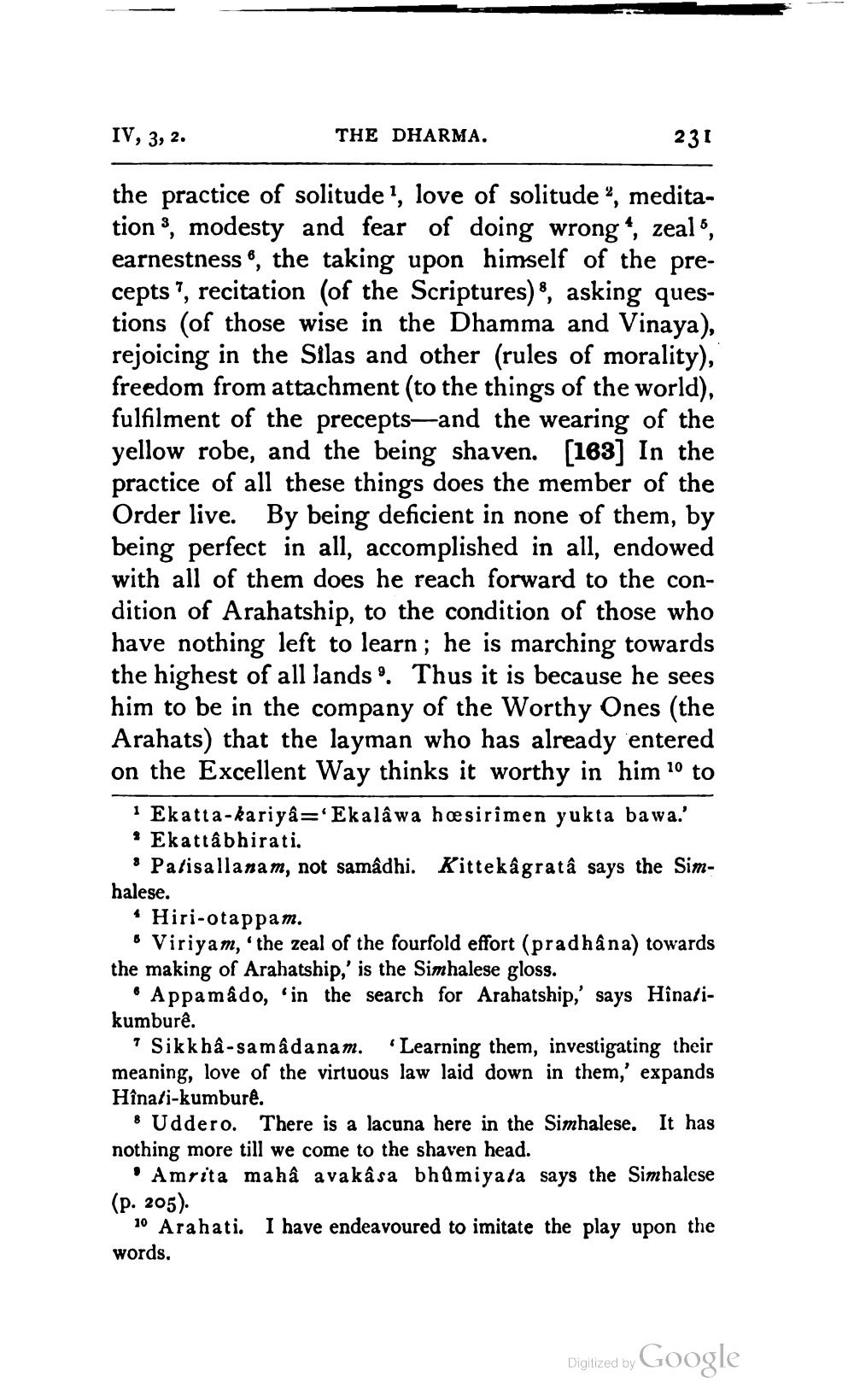________________
IV, 3, 2.
THE DHARMA.
231
the practice of solitude !, love of solitude ?, meditation, modesty and fear of doing wrong", zeal, earnestness, the taking upon himself of the precepts", recitation (of the Scriptures) , asking questions (of those wise in the Dhamma and Vinaya), rejoicing in the Silas and other (rules of morality), freedom from attachment (to the things of the world), fulfilment of the precepts—and the wearing of the yellow robe, and the being shaven. [163] In the practice of all these things does the member of the Order live. By being deficient in none of them, by being perfect in all, accomplished in all, endowed with all of them does he reach forward to the condition of Arahatship, to the condition of those who have nothing left to learn; he is marching towards the highest of all lands'. Thus it is because he sees him to be in the company of the Worthy Ones (the Arahats) that the layman who has already 'entered on the Excellent Way thinks it worthy in him 10 to
· Ekatta-kariyâ='Ekalâ wa hasirimen yukta bawa.' : Ekattabhirati,
• Patisallanam, not samadhi. Kittekâgratâ says the Simhalese.
- Hiri-otappam.
o Viriyam, 'the zeal of the fourfold effort (pradhana) towards the making of Arahatship,' is the Simhalese gloss.
• Appamado, 'in the search for Arahatship,' says Hinatikumburê.
Sikk hâ-samadanam. “Learning them, investigating their meaning, love of the virtuous law laid down in them,' expands Hînati-kumburê.
& Uddero. There is a lacuna here in the Simhalese. It has nothing more till we come to the shaven head.
"Amrita mahâ avakâsa bhůmiyata says the Simhalese (p. 205).
10 Arahati. I have endeavoured to imitate the play upon the words.
Diglized by Google




